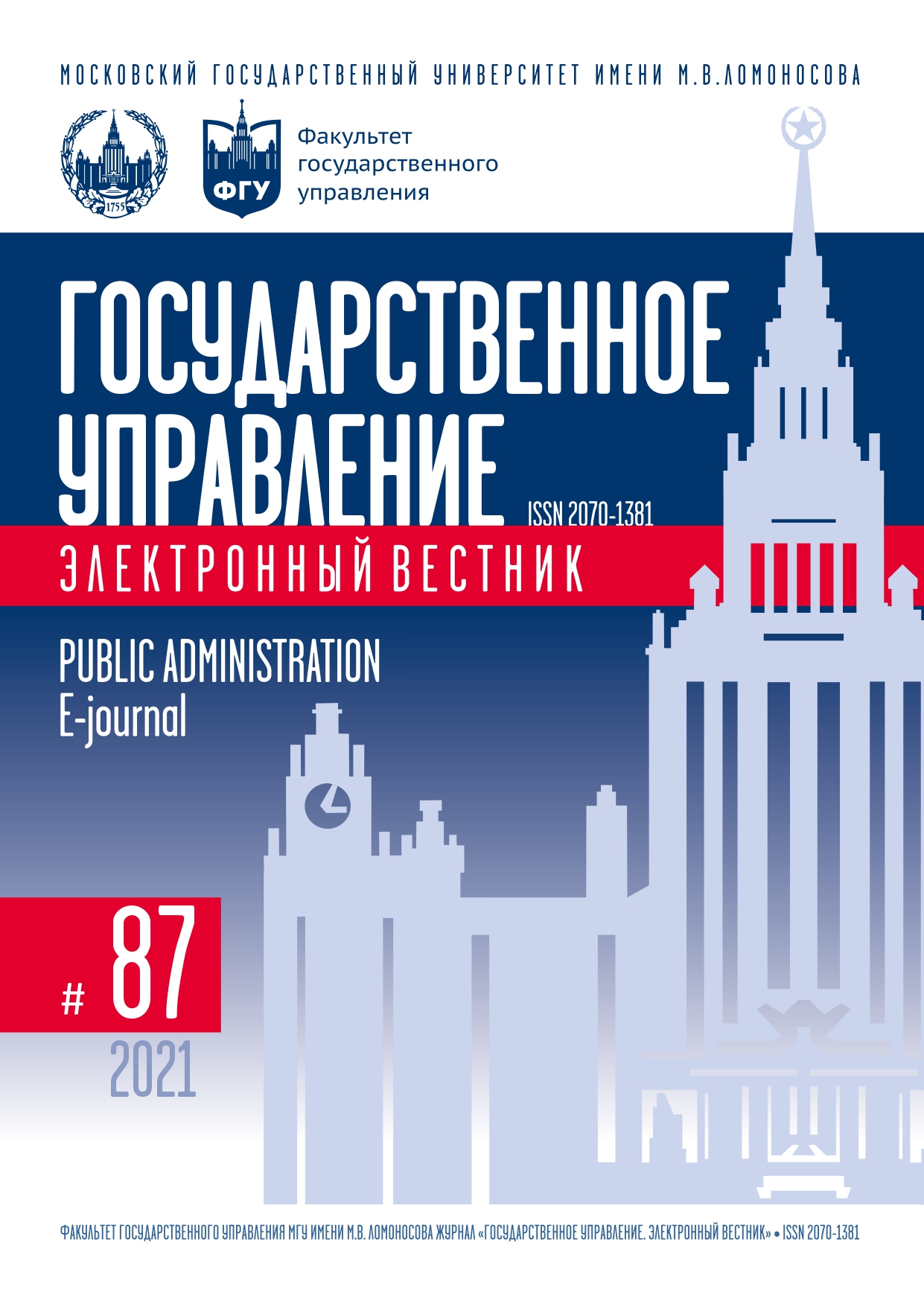Special Features of Russian Arctic Tourism
Keywords:
Arctic tourism, Russian Arctic tourism, sustainable development of tourism in Arctica, development of ArcticaAbstract
In 2021–2023 our country is chairing the Arctic Council, which opens up new opportunities for international dialogue and economic development of the Russian Arctic. The council will discuss a wide range of issues in various areas, including the development of Arctic tourism. The Arctic region is very different from all other regions of our country. On the one hand, it has a unique identity and tourist attraction, but on the other hand, there are many challenges and obstacles to tourism development (remoteness and inaccessibility of the Arctic territories, focal nature of infrastructure, harsh climate, great environmental risks, etc.). The set of current issues in this sphere includes the following aspects: development of environmentally friendly types of tourism, tourist safety, modernization and expansion of tourist infrastructure, personnel policy in the field of tourism, professional marketing of the Arctic territories, international cooperation, etc. A separate topic is the recovery of the tourism business in the context of the coronavirus pandemic. The positioning and promotion of the Arctic tourist product is possible only with a comprehensive approach and understanding of the multifaceted tourist potential of the Arctic zone, biological and cultural diversity of the Russian North. An important role in this process can be played by few indigenous people of the Arctic, who should be involved in the ongoing business initiatives aimed not only at generating profits, but also at preserving the unique culture and traditions of these people. The article considers the specific features of the tourism industry in the Arctic zone of Russia, its key problems and further prospects for sustainable development.
References
Агарков С.А., Козлов А.В., Федосеев С.В., Тесля А.Б. Основные направления повышения эффективности
хозяйственной деятельности в Арктической зоне Российской Федерации // Записки Горного Института. 2018. Т. 230. С. 209–216. DOI: 10.25515/PMI.2018.2.209.
Бертош А.А. Арктический туризм: концептуальные черты и особенности // Труды Кольского научного центра РАН. 2019. Т. 10. № 7-17. С. 169–180. DOI: 10.25702/KSC.2307-5252.2019.7.169-180.
Грушенко Э.Б. Экологический туризм как фактор устойчивого развития западной Арктики // Арктика и
Север. 2018. № 32. С. 18–29. DOI: 10.17238/issn2221-2698.2018.32.18.
Дзюбан В.В. Туризм в Арктике: проблемы и развитие // Архонт. 2020. № 3(18). С. 10–13.
Желнина З.Ю., Терещенко Н.В. Мотивация и культурные стереотипы как факторы развития арктического туризма // Общество: философия, история, культура. 2019. № 2(58). С. 72–76. DOI: 10.24158/fik.2019.2.15.
Куклина М.В., Галтаева А.Л. Перспективы развития Арктического туризма // Молодежный вестник ИРГТУ. 2020. Т. 10. № 2. С. 74–79.
Меньшикова Т.Н. Пространственный анализ развития туризма в регионах Арктической зоны РФ на основе кластерного подхода // Вестник Московского государственного областного университета. Серия: Географическая среда и живые системы. 2019. № 2. С. 94–100. DOI: 10.18384/2310-7189-2019-2-94-100.
Севастьянов Д.В. Арктический туризм в Баренцевоморском регионе: современное состояние и границы возможного // Арктика и Север. 2020. № 39. C. 26–36. DOI: 10.37482/issn2221-2698.2020.39.26.
Цветкова Ю. Некоторые вопросы, связанные с осуществлением арктического туризма, не урегулированные российским законодательством // Океанский менеджмент. 2018. № 1. С. 117–123.
Rantala O., Barre S. De la, Granås B., Jóhannesson G.Þ., Müller D.K., Saarinen J., Tervo-Kankare K., Maher P.T., Niskala M. Arctic Tourism in Times of Change: Seasonality. Copenhagen: Nordisk Ministerråd, 2019. DOI: 10.6027/TN2019-528.
Государственное управление. Электронный вестник Выпуск № 87. Август 2021 г.
Runge C.A., Daige R.M., Hausner V.H. Quantifying Tourism Booms and the Increasing Footprint in the Arctic with Social Media Data // Plos One. 2020. DOI: https://doi.org/10.1371/journal.pone.0227189.
Downloads
Published
How to Cite
Similar Articles
- Anna A. Voloshinskaya, Varvara V. Akimova, City’s Sustainable Development and Indicators for Its Measurement , Public Administration. E-journal (Russia): No. 93 (2022)
- Sergey E. Trofimov, State Regulation of Integrated Development of Hydrocarbon Resources of the Arctic and Continental Shelf of Russia , Public Administration. E-journal (Russia): No. 101 (2023)
- Sergey E. Trofimov, Development of the Oil and Gas Potential of the Arctic Region: Issues of Methodology and Practical Implementation , Public Administration. E-journal (Russia): No. 104 (2024)
- Sergey E. Trofimov , State Policy of Import Advance in the Russian Oil and Gas Complex , Public Administration. E-journal (Russia): No. 99 (2023)
- Nina A. Voskolovich, On the Way to Digital Tourism , Public Administration. E-journal (Russia): No. 102 (2024)
- Sergey M. Nikonorov, Anastasiia N. Kulikova, Floating Nuclear Power Plant as a Driver for the Sustainable Development of Arctic Cities (on the Example of Pevek) , Public Administration. E-journal (Russia): No. 107 (2024)
- Elena I. Vasileva, Anastasia V. Orfonidii, Implementation of Smart City Project in Cities of Ural Federal District , Public Administration. E-journal (Russia): No. 94 (2022)
- Natalia N. Yakimchuk, Marina N. Kuznetsova, Marina V. Ivanova, State Management of Territories Sustainable Development: The Experience of Finland and Russia , Public Administration. E-journal (Russia): No. 85 (2021)
- Alla Z. Bobyleva, Valeriy М. Anshin, Designing Sustainable Development Transformation Program for a Company , Public Administration. E-journal (Russia): No. 88 (2021)
- Nina A. Voskolovich, Antonina S. Resmiatova, International Cooperation as a Driver of Inbound Tourism Development to Russia from China , Public Administration. E-journal (Russia): No. 95 (2022)
You may also start an advanced similarity search for this article.




